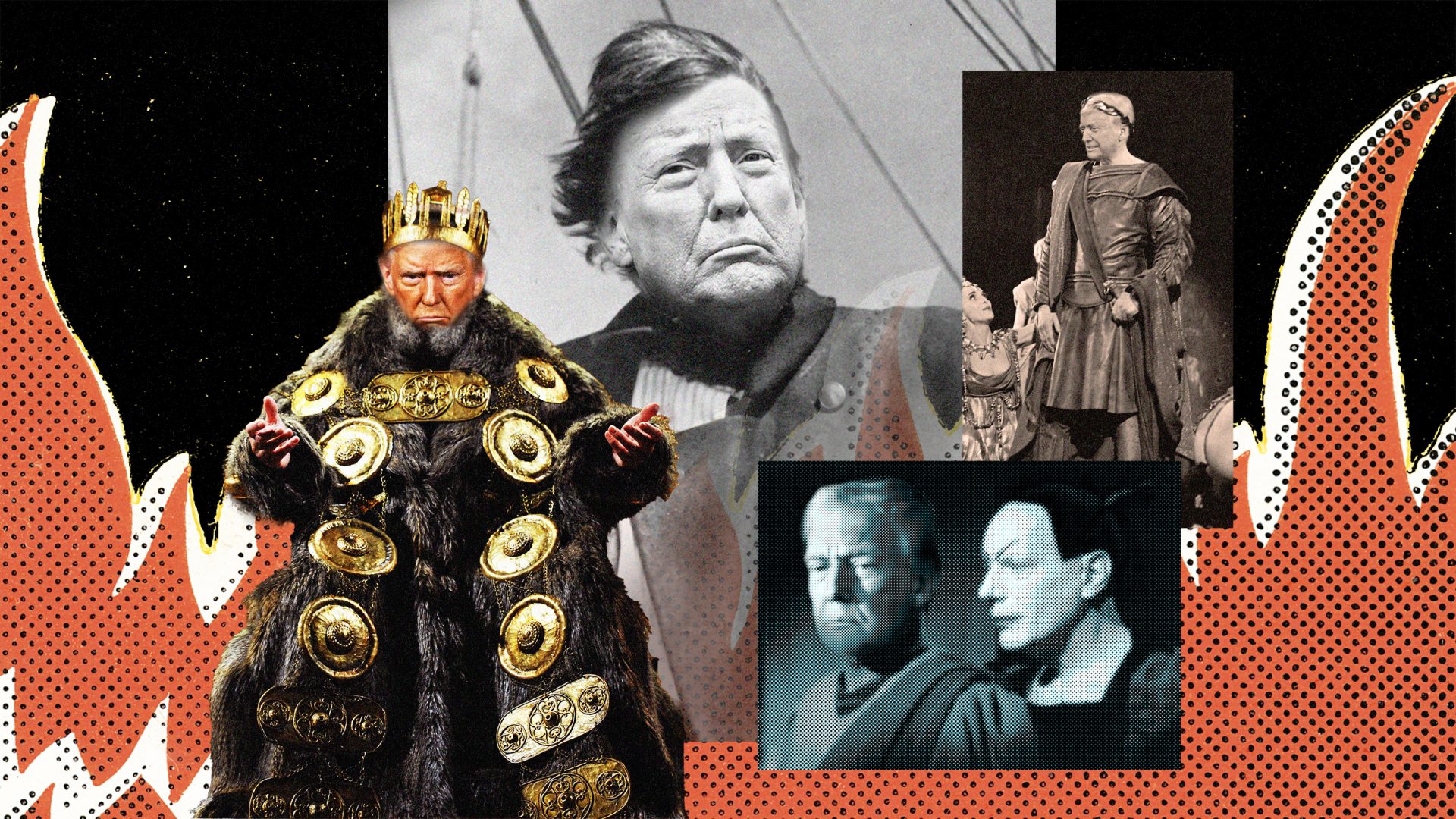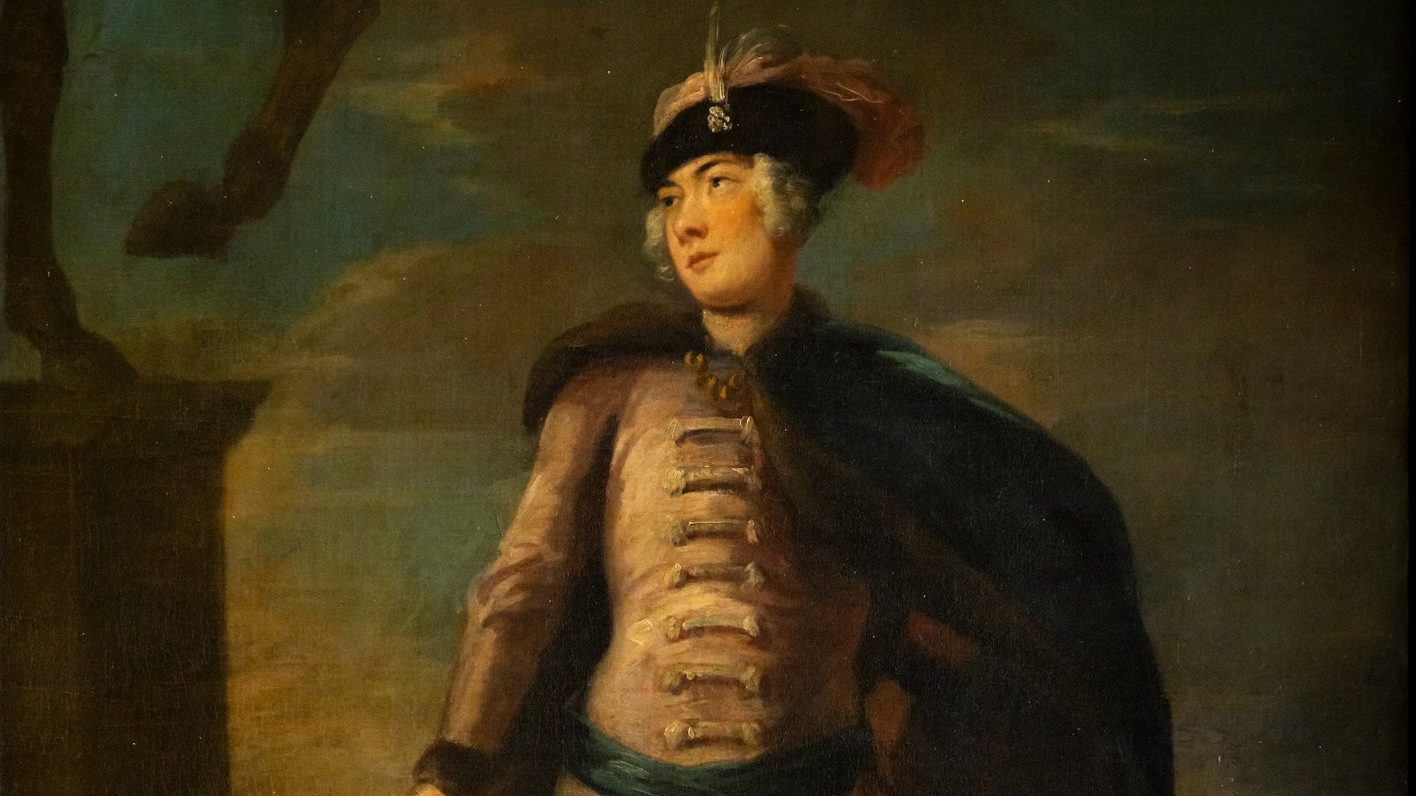Where is Donald Trump in the canon of European literature? Have any of our great writers foretold him, defined him, nailed him for all time in prose or verse? Can Trump – or at least someone closely resembling him – be found in our pages, on our bookshelves?
This is a quest for our times, and where better to start it than hell, in the 34 cantos of Dante’s Inferno? Certainly, there’s a better chance of finding Trump here than in the subsequent 66 cantos of Purgatorio and Paradiso.
Dante puts tyrants in the seventh circle of hell, along with others defined by violence. He and his guide Virgil find Attila the Hun and the rest in a river of boiling blood: “The tyrants who gave their land to blood and plunder… here they lament their ruthless crimes.”
Dante’s hell was put together by a deeply thoughtful man, and his hierarchy of culpability is not what you might expect. The lustful get off comparatively lightly, blown about by a fierce wind in the second circle. And there is a deeper hell than that of the tyrants: Dante and Virgil find the fraudulent in the eighth of the nine circles; the last is devoted to the treacherous.
Here, in a lake of boiling pitch, demons eternally tear the deceivers to pieces. Perhaps Trump should be found here – Washington Post fact-checkers compiled 30,573 false or misleading statements he made in the four years of his first presidency, or 21 a day.
Of course, he is trying to beat that second time around. Recent examples: Ukraine started the war with Russia, the United States is the only country in the world that offers birthright citizenship (there are dozens, including Canada and Mexico) and China runs the Panama Canal.
But perhaps Trump’s most striking quality is his conviction of his superiority over everyone else, apart from Vladimir Putin. So we have to move from Dante to Proust, where this contempt for lesser beings is echoed by the Baron de Charlus, in A la recherche du temps perdu.
The Baron accuses the Narrator of slandering him: “Do you suppose it is within your power to insult me? You are evidently not aware to whom you are speaking. Do you imagine that the envenomed spittle of five hundred little gentlemen of your type, heaped one upon another, would succeed in slobbering so much as the tips of my august toes!”
The same spirit can be found in Goethe when his hero first meets the devil: “My name is Faust, in everything thine equal.” But Faust’s eventual deal is subtle and not based entirely on power: Unlimited knowledge and worldly pleasure attract him more. If he experiences a moment of earthly life so perfect he wishes to live in it forever, the devil wins. But he never quite does, and Faust is saved despite himself.
Marlowe’s Doctor Faustus is far more downright:
“Oh what a world of profit and delight
Of power, of honour, of omnipotence
Is promised to the studious artisan!”
But Faustus fritters away his power with futilities like playing a trick on the Pope and visiting the Holy Roman Emperor, and his highest pleasure is his tryst with Helen of Troy – or a demon masquerading as her – before the devils come to get him.
Perhaps Trump is better found in Marlowe’s Tamburlaine the Great, as role model rather than dead ringer. Tamburlaine adores power:
“It is not passing brave to be a king
And ride in triumph through Persepolis?!
In Part Two, Tamburlaine has himself towed in a carriage by the kings he has conquered: surely something for the Trump wish-list.
“Holla, ye pampered jades of Asia!
What, can ye draw but twenty miles a day?”
Revenge is high on Trump’s list of pleasures: everyone who ever had a tolerant thought is fair game. This is Shakespeare’s Titus Andronicus:
“Vengeance is in my heart, death in my hand.
Blood and revenge are hammering in my head.”
Titus turned down the chance to be emperor, so the parallel is not exact – but he stabs his guests at a banquet after serving up their sons in a pie, providing a stimulating lesson in the possibilities of revenge.
The problem with searching for Trump in Shakespeare is that Shakespeare’s characters (Titus is an exception) are complex and profoundly nuanced. It’s tempting to link Trump with Macbeth, but Macbeth is, at least to begin with, a sympathetic character, a nice bloke with a wonderful marriage. There’s something of us all in Macbeth: that’s rather the point.
Hamlet is an avenger but a reluctant one and always an intellectual. Richard III is too busy protecting his position to enjoy it. Prospero in The Tempest is a mendacious and manipulative despot, but he’s also concerned with love and forgiveness – and anyway, he’s too small-scale.
Perhaps the closest Trump parallel in Shakespeare is King Lear, but the Lear before the play begins: a man basking in power and his sense of his own royalty – and as innocent as a newborn babe when it comes to self-knowledge. Perhaps we need the Trump narrative to continue for a few more years before we find his Shakespearean dimension.
It’s easier to find traces of Trump in less ambitious literature than Shakespeare. There are hints in Napoleon, from George Orwell’s Animal Farm: in the final scene, the great leader and pig supreme plays the ace of spades at exactly the same time as his opponent. A modern rewrite would prefer a game of golf, with Napoleon kicking his mishit ball onto the fairway. Caddies on Trump’s golf courses call him “Pelé”, for his adroit use of his feet.
In Lewis Carroll, when Alice passes through the looking-glass, she finds herself in a world of sinister archetypes. But she gives as good as she gets, even from Humpty Dumpty, who is obsessed with his own importance and maintains: “When I use a word it means just what I choose it to mean – neither more nor less.” Trump wouldn’t find that amusing: he’d wonder why anyone bothered to write down so self-evident a truth.
There is inevitably a Trump figure in the Harry Potter books: in the fifth volume, Harry Potter and the Order of the Phoenix, Hogwarts School of Witchcraft and Wizardry acquires a new head mistress, Dolores Umbridge, whose principal ambition is to obliterate all the memories and traditions established by her liberal predecessor, Albus Dumbledore: “Progress for the sake of progress must be discouraged.”
Trump also has hints of some of the James Bond villains, including two ginger-headed enemies of the free world. Goldfinger is another golf cheat; he tries to rob Fort Knox by killing the entire local population. Sir Hugo Drax cheats at bridge and would have succeeded in blowing up London but for Bond.
But it’s when I turn away from Europe and look across the Atlantic that I can see the closer similarities, not in any single character but in a combination. Trump has elements of both Gatsby and Captain Ahab from Moby-Dick. Gatsby has all the obsessiveness you could wish for, along with an awe-inspiring façade of falsehood, lies and deceit.
Gatsby also has many eerily sympathetic characteristics that don’t fit. In behaviour, Trump is more like Tom, the husband of Daisy, who Gatsby adores and seeks to make his own. Tom is a rich brute who uses his money like a club, but he has no ambition beyond personal gratification. Gatsby seeks to make the world exactly the way he wants it to be, and to be greatly loved at the same time.
Ahab is about the lust to destroy: not simply for revenge but out of love of destruction for its own sake: for the joy of hearing the bang. As he sets off to hunt down the great white sperm whale Moby-Dick he is described as “a grand, ungodly god-like man”. And he remarks: “I’d strike the sun if it insulted me”.
How will Captain Donald’s mad quest end? And what is he actually seeking? These are the questions hanging over the entire planet as we turn each day to the news with ever-greater trepidation. What’s he done now? What’s going to happen next? Ahab destroys himself as well as the whale, the good ship Pequod and everybody on board save Ishmael.
“For hate’s sake I spit my last breath at thee,” Ahab tells the whale as they both go under for the last time. The German thinker Walter Benjamin wrote an essay on The Destructive Character which claims that acts of pure destruction make an ageing person feel young and cheerful again. He adds: “He has few needs, the least of them is to know what will replace what has been destroyed.”
The narrative of Donald Trump continues. Its principal character is both absurd and terrifying, infinitely petty and with the entire world within his scope. He is a million miles from the regrets of Doctor Faustus or the eternal consequences chronicled by Dante.
The prospect of the next chapter or the next act is deeply troubling to every reader of his story: the issue of what we will find when we get to the last page is almost too frightening to contemplate.




